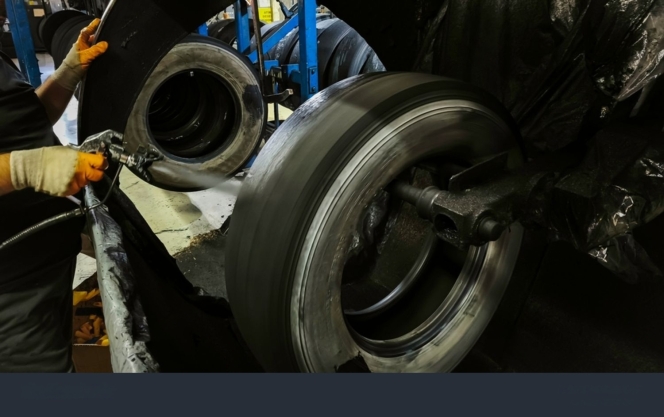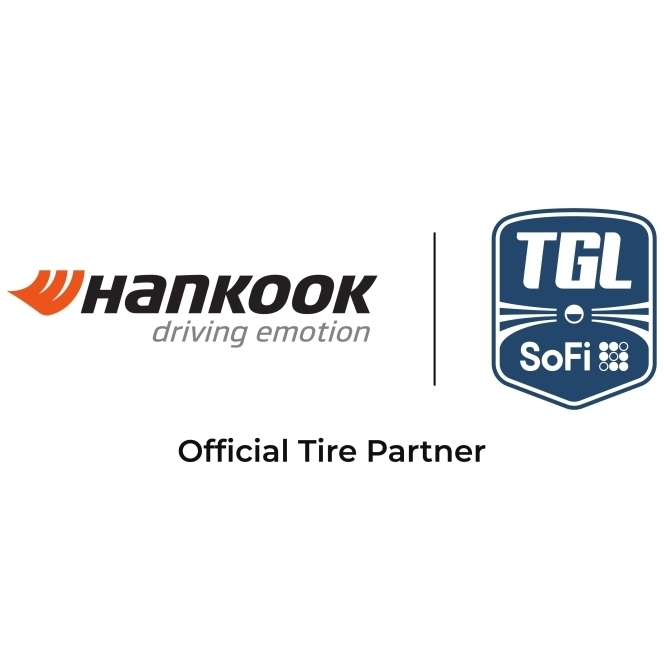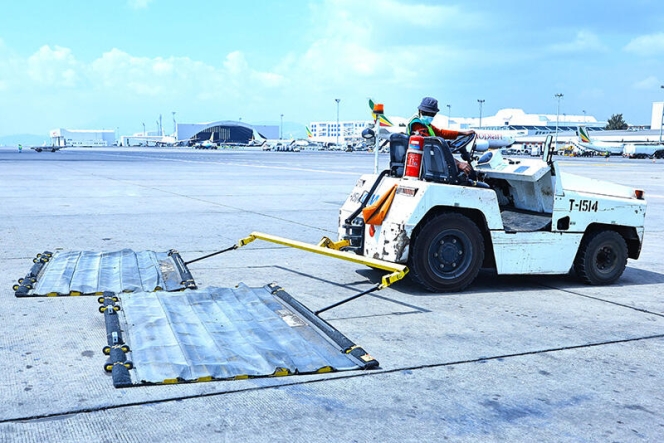Sustainability trends in tyre industry
- By Gregers Lindvig
- February 22, 2021

“Sustainability” is the word of the 10’s that will surely last well into the 20’s. But how far is the tyre industry on the path to contributing to a sustainable future? I touched upon the matter a little bit in the last issue, where I compared game-changing product development efforts in the tyre industry to British Tobacco starting to advertise against smoking. While the point there was that it’s not likely we’ll see major tyre manufacturers entering the passenger drone manufacturing industry or similar engagements, while at the same time advertising against tyre usage, a similar point can be made from a sustainability perspective.
Because the fact is that tyre production consumes a massive amount of energy, and the products are a source of massive pollution all over the world. The microparticles shed by tyres on the road enter the ecological systems everywhere and impact nature in a way we might not be able to undo. So, sustainability efforts in the tyre industry must therefore focus on product development as much as on energy sources.
Emission management
The latest trend in emissions management is including third party emissions in the calculation, meaning the emissions from the entire supply chain involved in the production must be connected to the products put out. That makes a lot of sense but does pose challenges for controlling the facts when engaged in global supply chains. It surely requires that a supplier is able to measure its emissions in a reliable and proven way. Naturally, it’s a measure to prevent “emission shopping,” where countries will buy emission quotas from each other, so they can pollute more while the selling countries can pollute less – it blows the mind that it was at all possible in the first place, so the actions taken now make a lot of sense, even if it is a challenge to manage. Because it doesn’t matter much that a manufacturer only uses green energy to power its production units in Europe, where local emission requirements are very strict, if it sources materials produced using fossil energy sources from other countries.
On top of that, globalisation has provided another unsustainable factor to the mix: transportation. Earlier, manufacturers would source as many materials as possible locally, while only crossing borders to source products that were available inside its own. These days, the market is global. If a material or component is slightly cheaper on the other side of the planet, it will be sourced from there to ensure the lowest possible cost structure. But the irony in terms of environmental impact is that this often results in materials being shipping across the globe and finished products being shipped back to where the materials came from. It’s a complex analysis to get the full picture of the cradle-to-grave environmental impact of manufacturing these days, but it’s very likely that transportation emissions weigh heavier on the negative scale than they ever did before. That’s why local sourcing is as important to large manufacturers as basing production on renewable energy consumption.

Impact during life-cycle
The other element in the equation is at least as important as the sustainability of how the product was put into the world: the environmental impact of the product itself during its life cycle, and especially of the disposal at end-of-life. 10 years ago, the first big step in reducing the environmental impact of tyre usage was made introducing the REACH regulation in the EU. It stipulates restricted chemicals and very low limit values for “substances of very high concern,” which is an ever growing list of chemicals that manufacturers must actively stay updated on. Naturally, the regulation didn’t aim at tyres specifically, but it did mean that in order to supply tyres to the EU markets, all tyre manufacturers had to change the softening oils used in their rubber compounds, and to date it still poses a strategical challenge to many manufacturers to split production into conforming and non-conforming lines, as the cost of managing two systems can weigh heavier than the added material cost of the clean oils. Some still separate the lines, as product performance requirements in some non-EU markets are still easier met using the softening oils not permitted in the EU. It’s a difficult balance for manufacturers when environmental regulations not only make the product more costly to produce, but also increases the difficulty of staying competitive in the market in terms of performance parameters.
‘Green’ in name
Naturally, many manufacturers have been quick to take on the challenge and coin it in their marketing communication as if they are now suddenly “green” tyre manufacturers, and countless tyre brands pop up that have the word “green” in the name. But in reality, in terms of environmental impact, the changes implemented in the industry so far are only baby steps. Tyres can easily be made more durable while still offering the same levels of comfort and safety as they do now, in fact they can be improved on all parameters by using more innovative pattern designs and rubber compounds. Why isn’t it done, then?
The obvious explanation is that product pricing would increase drastically, and consumers in most parts of the world are not willing or able to pay more for their tyres, even knowing that they would last a lot longer than the ones they have bought before. Producing longer lasting tyres would also drastically increase the effectiveness of global production lines, reducing the quantity of energy consuming factories in a way that will have a real global impact for the environment. But, as consumers are not likely to support this with their wallets, the only way to get there is through regulation and legislation. And then maybe tyre manufacturers will start developing products they can call green without being accused of marketing ruses.
Intelligent tyres
Though we probably won’t see them all moving into the aforementioned passenger drone segment, we might see them moving towards developing products that will display no or almost no wear during the life cycle, potentially outlasting the vehicle they are fitted on from birth. I have seen innovative designs for intelligent tyres that can adjust the pattern and hardness to adapt to any surface and weather condition guided by AI, and maybe we will get there some day. Until then, tyres need to live longer than they do today. Not just to reduce particle pollution during use, but also to reduce the burden of disposing of worn out tyres, which is a massive challenge all over the world. Here’s hoping we’ll see some of the large manufacturers bring a truly sustainable agenda to the table soon, including both full supply chain emissions and product environmental impact from cradle to grave.
- INDIAN TYRE INDUSTRY
- TYRE RETREADING
- BIS STANDARDS
- IS 15704
- ECE R109
- CIRCULAR ECONOMY
- MSME CHALLENGES
- AUTOMOTIVE REGULATION
- CARBON REDUCTION
- FREIGHT
- LOGISTICS
Retreading Hangs In Balance Over Regulatory Conundrum
- By Gaurav Nandi
- December 30, 2025

A population of over 1.4 billion people catapulting into the world’s third largest automobile market with four million trucks plying across a road network of 6.3 million kilometres supported by a USD 13.4 billion tyre market and a mining sector contributing around 2–2.5 percent of the country’s GDP demonstrate the strength of India’s automobile, freight and tyre sectors.
The story doesn’t end there as the Central Government adopts a strategic approach on reducing carbon emissions across these verticals, especially automobile and tyres, with targets such as the Net Zero Carbon Emissions by 2070, battery electric vehicles target by 2030, zero-emission truck corridors, Extended Producer Responsibility for the tyre sector; the list just goes on.
Amidst all such statistics and targets, a silent spectator remains the old and varied sector of tyre retreading. In a recent news story reported by Tyre Trends, the Indian Tyre Technical Advisory Committee (ITTAC) had made a proposal to Tyre Retreading Education Association (TREA) for mandating certain standards that will improve the quality of retreads. ITTAC has made recommendations to the BIS committee. TREA is part of the same committee. ITTAC and TREA are recommending different standards.
These standards included BIS retread standards, namely IS 15725, IS 15753, IS 15524 and IS 9168. The ITTAC had partially aligned Indian requirements with ECE R109, the European regulatory benchmark.
In a reply to the proposal, which was accessed by Tyre Trends, TREA urged the Indian Tyre Technical Advisory Committee to seek a deferment or non-applicability of BIS standard IS 15704:2018 for retreaded commercial vehicle tyres, warning that mandatory enforcement could cripple the sector.
In the letter, TREA argued that IS 15704:2018 is largely modelled on new tyre manufacturing norms and is technically unsuitable for retreading, which is a restoration and recycling process.
The standard mandates advanced laboratory tests such as spectrometer-based rubber analysis, endurance testing and compound uniformity checks, requirements that most retreading units, particularly small and medium enterprises, are not equipped to meet
The association highlighted that even large retreaders lack the infrastructure and skilled manpower needed for BIS-grade testing, while the sheer number of retreading units would make inspections and certifications operationally unmanageable for regulators.
TREA warned that compliance costs linked to machinery upgrades, audits and quality control could force 70–80 percent of units to shut down, leading to job losses, higher fleet operating costs and adverse environmental outcomes due to reduced recycling
Instead, TREA proposed that BIS prioritise retreading-specific standards such as IS 13531 and IS 15524, which focus on materials, process control, safety and quality consistency.
The body has also called for a phased transition roadmap, MSME support and industry training before any stricter norms are enforced, stressing that abrupt implementation would undermine the sector’s role in India’s circular economy.
The conundrum
India has a total of 36 administrative divisions comprising 28 states and 8 union territories. The tyre retreading sector has been continuously supporting circularity goals since the early 1970s across the world’s largest economy without getting mainstream recognition.
Even after five decades in service, the industry battles different bottlenecks including fragmentation, manpower shortage, tax pressures brought about by the recent GST revisions and now the implementation of such standards, just to name a few.
The sole practice that can simultaneously reduce carbon emissions from tyres and extend tyre life is assumed the nemesis of an ‘infamous and dangerous practice’ in some states of the country.
However, the industry has been drawing its techniques and quality parameters from the world’s oldest retreading economy, Europe.
“Big retreaders in India already have the necessary processes in place that conform to IS 15524 standards. However, as the standard is not yet mandated, we have voiced support for it because it is process-oriented and outlines how retreading should be carried out, including buffing and building procedures,” said TREA Chairman Karun Sanghi.
He added, “This standard focuses on how the work is done rather than imposing product-level testing that cannot be practically implemented. The current debate on IS 15704 stems from it being fundamentally incompatible. The standard includes requirements such as sidewall marking and destructive testing of retreaded tyres, which are impractical in a retreading environment where each tyre differs in brand, size, application and usage history,” he added.
Destructive testing, he argued, assumes uniform batch sizes. In retreading, where every casing is unique, testing even a single tyre would mean destroying finished products without yielding representative results. Applying such a framework would effectively require the destruction of every tyre in a batch, making compliance unviable.
“We have submitted our response to ITTAC and are awaiting feedback from the committee. We remain open to continued dialogue and will engage further once the committee responds to our submission,” said Sanghi.
According to him, a typical retreader processes about 300 tyres a month across multiple brands including MRF, JK Tyre, Apollo and Michelin and applications ranging from buses and trucks to mining vehicles. These casings vary widely in load cycles, operating conditions and duty patterns, often across several models from the same manufacturer.
The committee has cited European standard ECE R109, but Sanghi points to structural differences: “Europe is a global retreading hub where tyre manufacturers such as Michelin and Bridgestone dominate operations, collect their own tyres, retread them and return them to fleets, making batch-based destructive testing relevant. A similar model exists in US, where large tyre companies lead retreading and largely self-regulate without a single overarching standard. The Indian scenario is different, especially with a fragmented market.”
He stressed that the industry is not opposed to standards but to those that cannot be practically applied, warning that adopting European manufacturing-oriented norms without accounting for India’s market structure and operating realities would be counter-productive.
The debate is no longer about whether standards are needed but whether they are fit for purpose. Without accounting for India’s fragmented retreading ecosystem, enforcing impractical norms could dismantle a circular industry in the name of compliance.
TGL Season 2 Kicks Off With Hankook As Founding And Official Tire Partner
- By TT News
- December 29, 2025

The second season of TGL Presented by SoFi, where Hankook Tire serves as the Founding and Official Tire Partner, commenced on 28 December 2025. This innovative league, a venture of TMRW Sports with backing from icons like Tiger Woods and Rory McIlroy, represents a strategic alignment for Hankook, uniting two entities driven by technological advancement. The partnership provides a global platform to reinforce Hankook's premium brand positioning across North America and worldwide through extensive visibility during broadcasts and at the state-of-the-art SoFi Center in Florida.
This unique venue embodies the league's fusion of sport and technology, featuring a massive simulator with a dedicated ScreenZone and a dynamic GreenZone. This area, equipped with a turntable and over 600 actuators, meticulously replicates real-world golf conditions indoors, creating an immersive arena experience. The competition itself is fast-paced and engaging, with teams of PGA TOUR players competing in Triples and Singles sessions over 15 holes. Innovative elements like the point-doubling ‘Hammer’, real-time strategy via ‘Hot Mic’ and a Shot Clock ensure a dynamic spectacle for fans.
The season opener presented a compelling narrative as a rematch of the inaugural finals, pitting the undefeated Atlanta Drive GC, featuring Justin Thomas and Patrick Cantlay, against a determined New York Golf Club squad led by Matt Fitzpatrick and Xander Schauffele. This match set the tone for an intensive season running through March, where six teams and 24 top golfers will compete. For Hankook, this partnership is more than signage; it is an active engagement with a global community, delivering a distinctive brand experience that bridges cutting-edge mobility and sport for enthusiasts everywhere.
Dunlop Secures CDP ‘A List’ Recognition For Climate Change And Water Security
- By TT News
- December 29, 2025

Dunlop (company name: Sumitomo Rubber Industries, Ltd.) has made its way to the annual A-List of CDP for climate change and water security. This premier designation, awarded for the first time to the company in the 2025 evaluation, recognises world-leading performance in transparency, risk management and environmental action. CDP’s annual assessment is a key benchmark for corporate sustainability across climate, water and forests.
This achievement stems from the Group’s integrated approach to material issues outlined in its corporate philosophy. It treats the interconnected challenges of climate change, biodiversity and the circular economy holistically, advancing concrete initiatives under its long-term ‘Driving Our Future’ sustainability policy.
On climate, the Group’s science-based emission reduction targets for 2030 are validated by the Science Based Targets initiative. Operational efforts include pioneering green hydrogen production at its Shirakawa Factory and developing tyres made entirely from sustainable materials by 2050. The company also works to reduce emissions across its supply chain, lowers tyre rolling resistance to improve vehicle fuel economy and extends product life through retreading.
For water security, the strategy is driven by localised risk assessments at global production sites. In seven facilities identified as high-risk, the goal is to achieve 100 percent wastewater recycling by 2050. Progress is already evident, with the company’s Thailand factory reaching full wastewater recycling in 2024.
These coordinated actions on multiple environmental fronts formed the basis for the Group’s simultaneous top-tier recognition in both critical categories from CDP.
Bridgestone Launches Co-Creation Initiative With Ethiopian Airlines Group
- By TT News
- December 29, 2025

Bridgestone Corporation has initiated a novel co-creation programme in partnership with Ethiopian Airlines and Ethiopian Airports, focused on enhancing aviation safety at Addis Ababa Bole International Airport. This marks Bridgestone’s first sustained three-way collaboration with both an airline and an airport authority, targeting the reduction of Foreign Object Debris on runways and taxiways to support safer and more reliable aircraft operations.
The project was prompted by tyre-related incidents linked to debris at the airport, which previously risked disrupting flight schedules. Leveraging its specialised system for inspecting used airline tyres and analysing debris data, Bridgestone assessed conditions at the hub and proposed a tailored action plan. The company provided continuous support by analysing debris distribution patterns, developing visual hazard maps, advising on efficient collection methods and conducting training to raise awareness among airport personnel.
These sustained efforts have yielded significant results, substantially lowering the rate of tyre damage caused by runway debris compared to levels before the collaboration began. This reduction has supported improved on-time performance for Ethiopian Airlines while advancing overall operational safety. Additionally, the initiative has encouraged greater use of retreaded tyres, promoting economic efficiency and environmental sustainability within the airline’s operations.
Looking ahead, Bridgestone and Ethiopian Airlines Group plan to deepen their co-creation efforts, aiming to generate further value for the aviation sector and broader society through continued innovation and partnership.
Retta Melaku, Chief Operating Officer, Ethiopian Airlines, said, "At Ethiopian Airlines, the safety of our passengers, employees and aircraft is a priority. We are pleased to collaborate with Bridgestone to further strengthen our efforts in reducing FOD at Addis Ababa Bole International Airport and ensure safe operations at the hub airport."
Getaneh Adera, Managing Director, Ethiopian Airports, said, "We remain fully committed to upholding the highest safety standards at Bole International Airport at all times. This significant achievement in reducing FOD is the result of our strong commitment for safe operations and close collaboration with Bridgestone. Through our co-creation activities, we are pleased to have realised safer operations with enhanced productivity and economic value."
Jean-Philippe Minet, Managing Director, Bridgestone Aircraft Tire (Europe) S.A., said, "By combining the learnings and insights from Ethiopian Airlines' operational issues with our analysis technology and know-how, we have deepened our co-creation to propose customised solutions. We are delighted to contribute to safe aircraft operations with peace of mind and to improved operational productivity through the co-creation of efficient FOD reduction on airport surfaces. Through further expansion and evolution of this solution, we will amplify the value of our ‘Dan-Totsu Products’, trust with our customers and value of the data for creating new value."







Comments (0)
ADD COMMENT